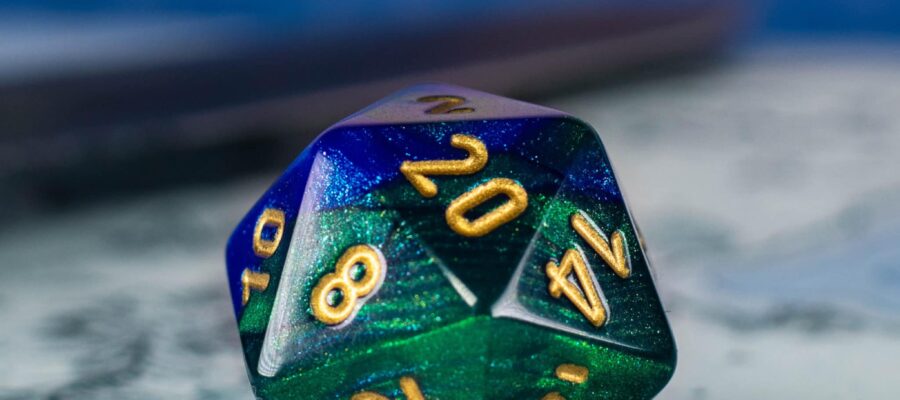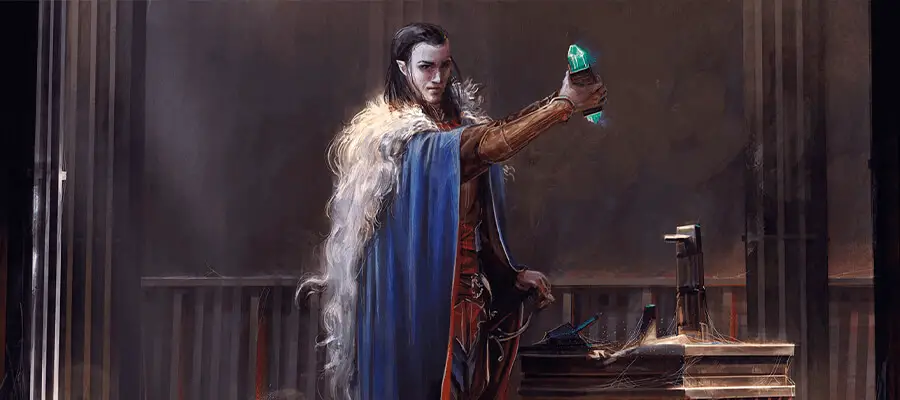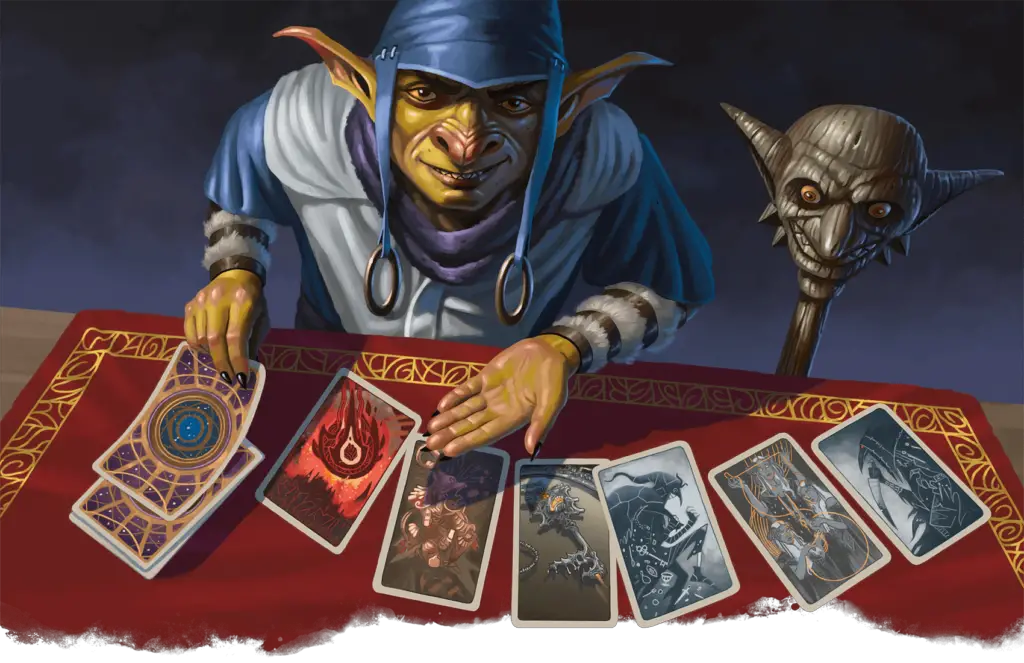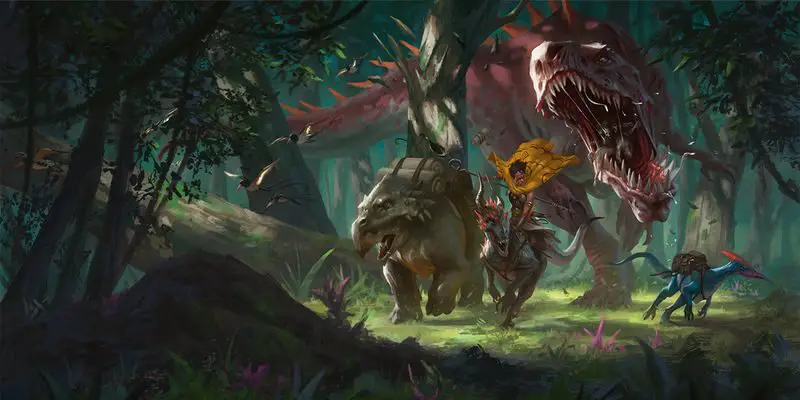Dice photography by the talented Timothy Miller.
Disclaimer: This article contains affiliate links that add gold to our coffers.
A common practice of Dungeon Masters is to pass the talking stick to a player who lands a killing blow against a monster. This is especially common when the monster is a boss monster or otherwise important enemy. This practice was assumed by me to be appreciated by all players, but it turns out I was wrong.
While I gather many players will enjoy their own narration of their killing blows, others gladly play without it. This article communicates what I learned about player psychologies and tastes, particularly how they differ from mine.
Some Players Don’t Enjoy Narrating Killing Blows
“How do you wanna do this?”
“Well, I don’t…”
I recently observed a conversation pop up in a Facebook D&D group when a player posted to express her distaste when DMs ask her to describe her characters’ killing blows. This really surprised me! I was further surprised when other people in the comments were agreeing with her. Wanting to explore the idea further, I began asking my friends how they felt about it. Most of them had positive or neutral feelings about players describing killing blows, but some concurred with the woman on Facebook. This blew my mind! I had to know more…
I have my own opinions about the mindsets I’m exploring, but today I’ll stick to an overview of the feedback I received. There are obviously contrary points of view to be had against the reasons players don’t enjoy narrating killing blows. I invite you to form your own conclusions, though I encourage you to think critically about how different every player is. You can’t tell them how to feel about a given part of your game. Make sure everyone feels comfortable and is having fun by asking your players how they feel about aspects of the game, including how you prompt them to narrate or roleplay.
With that out of the way, let’s review my findings!
Why Do Some Players Dislike Narrating Their Killing Blows?
I inquired further to find the root reasons for players to dislike lethal narratives. The main thing that surprised me was that my friends who enjoyed roleplaying more than combat were the ones most inclined to dislike narrating their killing blows. I assumed combat lovers would dislike the roleplaying burden placed upon their killing blows, but the opposite seems to be true.
#1 – Believing the DM Is Better at Narration
A player may feel inadequate or unqualified to figuratively hop into the DM’s chair to momentarily narrate a killing blow. Some DMs are really good at describing combat to make the players look and feel good about their mechanical choices. Players who struggle to describe their turns in combat may stumble if asked to describe an enemy’s fatality. The good news is that you’re doing a good job making the game thematic and evocative if your players are hung up on preferring to let you narrate their kills.
Embrace that players often compare themselves to their DMs. They may feel intimidated when asked to contribute more to the game than they’ve given so far. Some players may have reached the level of effort they’re willing to give, and they won’t budge. Not everyone is so into D&D to listen to advice online or study how to be a better player. That’s just a fact! Many D&D players enjoy playing the game, browsing the hobby’s memes, and that’s about it. It is what it is, so don’t get upset if your players prefer to have you narrate their kills. They’ll come around eventually when they want to try DMing themselves.
#2 – Feeling Distracted by Combat Mechanics
Players have expressed to me that they spend enough time focused on what they’re doing on their turns that suddenly being asked to come up with a cool finishing blow is taxing and difficult. This shows when I’ve asked such players to narrate their kills; they seem surprised and bothered, choosing to shrug and say something like, “I stab him through the heart.”
This is an example of a time where I, as the DM, am disappointed that a player didn’t “yes-and” my offer to narrate, but I have to be careful about this mindset. Personally, I never hesitate to describe something when my DM requests it. I tend to project that on to players when I DM, assuming they’d love the chance to narrate for a moment. While I wish they’d give it more effort when I ask these players to narrate, it’s far too easy for any DM to assume what their players want. After all, DMs, it’s not about us.
#3 – Overstepping the DM’s Domain
I learned that some players believe and expect their DM to handle all narration of anything external to their character choices. To them, killing blows are external narratives that a DM should handle. These players don’t want to overstep their creativity on this matter because it borders on partially seizing the DM’s job. They don’t want to experience a DM retconning their description.
My advice to players would be not to let this be a speed bump. DMs are often begging players to narrate what’s happening. A DM can easily dial it back if too much creative liberty is somehow assumed.
#4 – Hogging the Spotlight
Additionally, there is hesitation to take the spotlight. Taking down an enemy is a team effort, so describing a killing blow feels selfish or arrogant to some players.
I noticed an inherent assumption to this mindset: “Other players don’t enjoy listening to me narrate my kill.” This assumption might be vindicated in some groups where players aren’t supporting one another. However, I’ve inversely observed many groups audibly cheer for a player with a killing blow. The victory of one is the victory of all. I want to believe all groups have this collective excitement, but I must admit that not all do.
You might have luck tweaking the way you ask for a killing blow narration: “Will you please describe how you and [insert other player’s name] kill the boss monster?” This can convince other players to pay close attention or give their part of the request. Try it if your players need to focus more on teamwork to feel free to roleplay in combat more.
#5 – Respecting the Group’s Time
This is similar to hogging the spotlight but with a different mindset. It’s unclear to many players how much time and creative license they can take for narration. I only recently caught on to this mindset, but some players are hyper-conscious of taking up the group’s time for their own exploits. These players are also the types to become uncomfortable if the DM is spending too much time on a character shopping trip for them.
These players need permission from the DM to take up time. I’m not just talking about being asked to speak or narrate; they need an explicit, purposeful passing of the talking stick to them. Instead of asking, “How do you wanna do this?” explain and ask them, “You dealt enough damage to put a stop to this villain’s terrible rein finally. We’re all going to take a moment to enjoy your victory. Do you want to describe the kill, or would you like me to narrate?” This advice will help you with many of the other player concerns in this article, but this one is especially helped by taking a moment to give the player permission to narrate properly. Letting them know that they can take the time to be as brief or descriptive as they want will go a long way.
#6 – Disinterest in Violence
This reason is straightforward; describing kills is often inherently violent, and some players have no interest or imagination for that. They’d rather not have to be creative with the way they skewer an enemy. They do, however, want to get back to the story.
This reason can range from feeling like finishing blows are dull to feeling like finishing blows are morally apprehensible or gross. Experience has taught me that many (yes, many) players are slightly or completely unable to differentiate their own standards and thoughts from their characters’ actions and beliefs. Most players are not professional actors who can separate roles from themselves. As much as we like to pretend we’re just playing a character, most people invest a piece of themselves into the game. They may not realize they’re making the game personal, but it will become apparent if you ask them to describe or do something they’re against. Those of you who have experienced organic player vs. player moments know what I’m talking about…
Be wise and aware, and you’ll be fine. Violence tolerance can be covered in session zero. By the way, be careful not to be too explicit with your descriptions of violence if your players feel this way. The same goes for any player concern that could be covered in a session zero or perceived by the wise DM along the way.
#7 – No Good Ideas / Drawing a Blank
Players can draw a blank when asked for a finishing move. They’d like to say something spectacular, but they got nothing (some or most of the time). Go easy on players like this because they’re trying. If they need a moment to think of something that will satisfy their imagination, give a reasonable moment.
I saw a meme on Reddit where a player joked about having poor anatomical knowledge, thus was unable to describe cool killing blows. Biological knowledge helps!
Conclusion
The primary takeaway from this experience and discovery, for me, is that some parts of running a D&D game that I thought were unanimously enjoyed are, in fact, subjective in their reception. I’m beginning to suspect that there is not a single portion of a TTRPG that could be loved by 100% of humans. This lesson encourages me to be more mindful of how I run a game. I also understand that there are opportunities to better prepare for each group dynamic.
Whether I’m a DM or a player, I need to understand the people joining me in this game. People are nuanced! My experiences and tastes are not theirs. I can use myself as a baseline, but this game is about playing with friends. There are many games I could play that lack multiplayer functionality, but I choose to play D&D. The nerdiest game the requires friends.
Thanks for reading our content here at Flutes Loot! Before you go, cast Message in the comments section below to tell me what you think of this topic. Are you a player who could do without the killing blow narration expectation? Did my discovery surprise you as much as it surprised me? Tell me all about it.
You may also be interested in our additional content for DMs to help you run the game of D&D 5e. You can browse such articles here. Take care and happy adventuring to you!





i tend to not like it (as a player) because my characters are designed to do one (1) thing, like my character Maevak who weilded a legendary greatsword, I would only slice them in half (in various ways sure, but) that gets old really quick. i don’t wanna get repetitive, but I also don’t wanna deviate from the one way he kills
Hi Magic, love the name, haha. Yes, this is the most common feedback I’m hearing about the narration of killing blows.